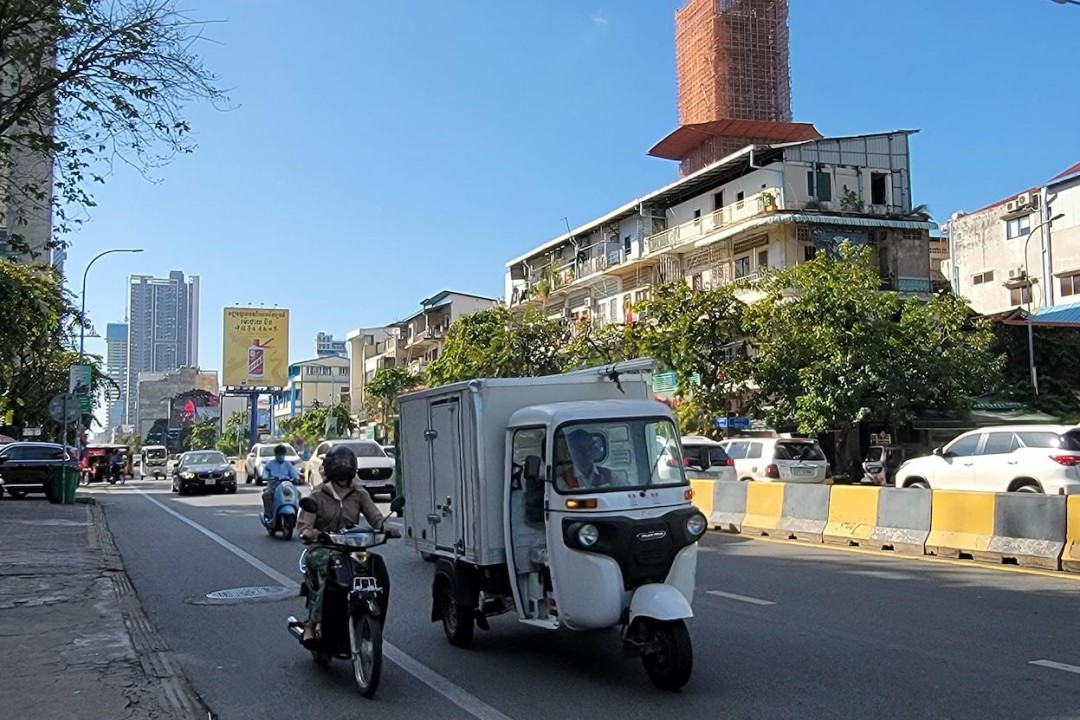Cambodia Introduces New Digital Platform To Register Informal Businesses

Cambodia launched a new digital platform on December 16, 2024, to support the onboarding of businesses under the informal economy into the government’s official record. This initiative falls under the National Strategy for Informal Economic Development 2023-2028.
A new sub-decree signed by Prime Minister Hun Manet on December 14, 2024, unveiled a new digital portal for the registration of informal businesses under the website domain www.informal.digitaleconomy.gov.kh – including a mobile application called ‘CAM-IE’ – as well as the registration procedures to be followed.
Cambodia’s National Strategy for Informal Economic Development 2023-2028 aims to promote capacity building, improve the efficiency and resilience of businesses in the informal economy, and assist them in the formalisation process. The government also announced in 2023 that it would be allocating USD 100 million to implement this new policy.
Launch Of Informal Digital Economy Platform 2024
During the platform’s launch ceremony on December 16, Prime Minister Hun Manet emphasised that the new system aims to get a better grasp of the situation regarding the informal economy in Cambodia.
“The main purpose of this new platform for the informal economic sector is to help and not impose any additional burdens on informal economy workers, based on the principle of voluntary and non-coercive participation,” he stated.
The National Strategy for Informal Economic Development is part of the government’s fourth priority policy program under the 7th legislature of the National Assembly, which was announced for implementation at the end of 2023.
The Prime Minister stated that officially registering informal businesses to the official system through the new digital platform will help the government better understand sector conditions and more adequately provide support to workers, creating more opportunities for business development and expansion, as well as improving living standards and general well-being.
“This registration is a commitment to understand what people in the informal economy are doing – to get to know them better,” he underlined, adding that it is not designed to facilitate tax collection.
H.E. Hem Vanndy, Minister of Industry, Science, Technology, and Innovation (MISTI) and Chairman of the Coordinating Committee for the Development of the Informal Economy, also affirmed that promoting informal economic development is a government priority.
He noted that enhancing competitiveness and boosting economic diversification are essential goals aimed at reducing poverty and social inequality, hence, this initiative will contribute to achieving Cambodia's vision of becoming an upper middle-income country by 2030 and a high-income country by 2050.
According to a recent study by the UNDP and ILO, 88 per cent of Cambodia's workforce was engaged in informal employment in 2019, with women constituting 87.6 per cent of this segment.
The same report indicated that Micro, Small, and Medium Enterprises (MSMEs) contribute 58 per cent of Cambodia's employment and GDP, however, a vast majority of these establishments remain unregistered and informal.
Benefit Packages Of Registering On the Government Informal Economy System
The Prime Minister announced there will be certain benefits given to businesses that register to the new government system, including:
- Tax Exemptions: Informal business workers with an annual turnover of less than KHR 250 million (roughly USD 62,300) are not subject to tax, do not need to pay patent tax, and do not need to prepare any tax declaration documents.
- Certificate of Registration: After registering and receiving approval, informal businesses will receive a certificate of registration, confirming their role and contribution to the national economy.
- Skills Development: This registration will enable informal workers to access skills development programs to improve their technical and professional skills.
- Access to Financial Services: Registration will act like a key to formal financial services, including credit or investment capital from financial institutions, to help informal businesses expand and also avoid unsafe informal borrowing.
- Membership in NSSF: Informal workers have the chance to become members of the National Social Security Fund (NSSF).
- Government Support: Registration will help the government gather accurate data, enabling the state to provide better targeted and rapid support to informal workers, especially during times of crisis.
- Free Healthcare: Registration will help workers receive free healthcare through the Health Equity Funds (HEFs) at public hospitals across the country.
Furthermore, the Prime Minister affirmed that registration of informal workers is completely voluntary and free of charge.